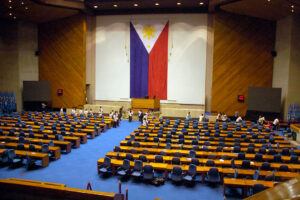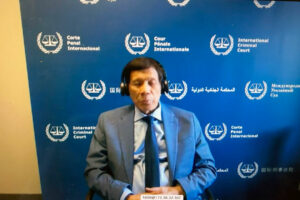BARMM electoral code could serve as model to curb political dynasties

By Chloe Mari A. Hufana, Reporter
THE Bangsamoro Autonomous Region in Muslim Mindanao (BARMM) could serve as a legislative model for the National Government in curbing political dynasties, a political analyst said, following the Supreme Court’s (SC) move to compel both chambers of Congress to respond to petitions pushing for the enactment of an anti-dynasty law.
“There’s precedent for the BARMM law to be the jump-off point for anti-dynastic legislation,” Hansley A. Juliano, political science lecturer at the Ateneo de Manila University, told BusinessWorld in a Facebook Messenger chat on Wednesday. “Local legislation and policies have been borrowed by national policy multiple times.”
The Bangsamoro Electoral Code, signed into law on March 8, 2023, includes a provision that prohibits nominees of regional parliamentary political parties from being related within the second degree of consanguinity or affinity.
This means that individuals such as children, siblings, parents, or spouses of other nominees cannot be nominated by the same party.
However, Mr. Juliano noted the need to observe at least one or two more electoral cycles before assessing the law’s full impact, noting the differences in the implementing rules and regulations.
BARMM is set to hold its first parliamentary elections on Oct. 13, after being postponed from May 12 due to Sulu’s exclusion from the region.
In an October 2024 report, the Philippine Center for Investigative Journalism found that 216 of 253 districts are represented by individuals who at least have one other relative previously or currently elected in public office, or hoping to get elected in 2025.
Also, among the candidates gunning for a Senate seat are the two brothers of Senator Rafael T. Tulfo, reelectionist Senator Pilar Juliana S. Cayetano, and the sister of Senator Mark A. Villar, whose term-limited mother is running for Las Piñas City’s district representative. Should they win, there will be a total of nine senators who are siblings, including the Ejercito-Estrada brothers.
Mr. Juliano also weighed in on the growing clamor for judicial intervention to bypass legislative inertia on the national level, following the High Court’s order on Tuesday.
“Judicial intervention is definitely understandable at this point — it’s much delayed, even,” he noted. “So far, judicial intervention based on petitioner filings does not seem to violate separation of powers, at least compared to judicial activism (i.e., making case decisions that will compel jurisprudence to be imposed on legislation).”
Still, Mr. Juliano emphasized that the biggest obstacle lies not in legality but in political will.
“Of course, the real block here is the good faith of the actors involved. With the bulk of the House still comprised of dynasties or aspiring dynastic politicians, it’s like asking the turkeys to vote for Thanksgiving.”
The SC en banc on Tuesday gave the Senate and the House of Representatives a non-extendible period of ten days from notice to comment on the consolidated petition filed by Kapatiran Party (Alliance for the Common Good) and, Wilfredo Trinidad, and 1Sambayan Coalition.
The Kapatiran Party earlier argued that the failure of Congress to pass an enabling law for over three decades constitutes a grave abuse of discretion.
Citing Article II, Section 26 of the 1987 Constitution, the petition emphasizes that the provision, which sought to “prohibit political dynasties,” is not merely aspirational but imposes a clear directive on the legislature to act.
The petitioners asked the SC to order both chambers of Congress to enact the necessary law and to recognize that the legislature’s long-standing inaction has effectively nullified a constitutional safeguard intended to promote equal access to public service and prevent the monopolization of political power.
Following this, the 1Sambayan Coalition filed a similar petition, which likewise asserted that the continued failure of lawmakers to define and prohibit political dynasties represents a constitutional violation.
1Sambayan also highlighted the detrimental impact of dynastic politics on governance, accountability, and social mobility in the country. Their petition strengthens the argument for judicial intervention, stressing that the legislative gridlock can no longer be tolerated given its far-reaching consequences on democratic processes.




